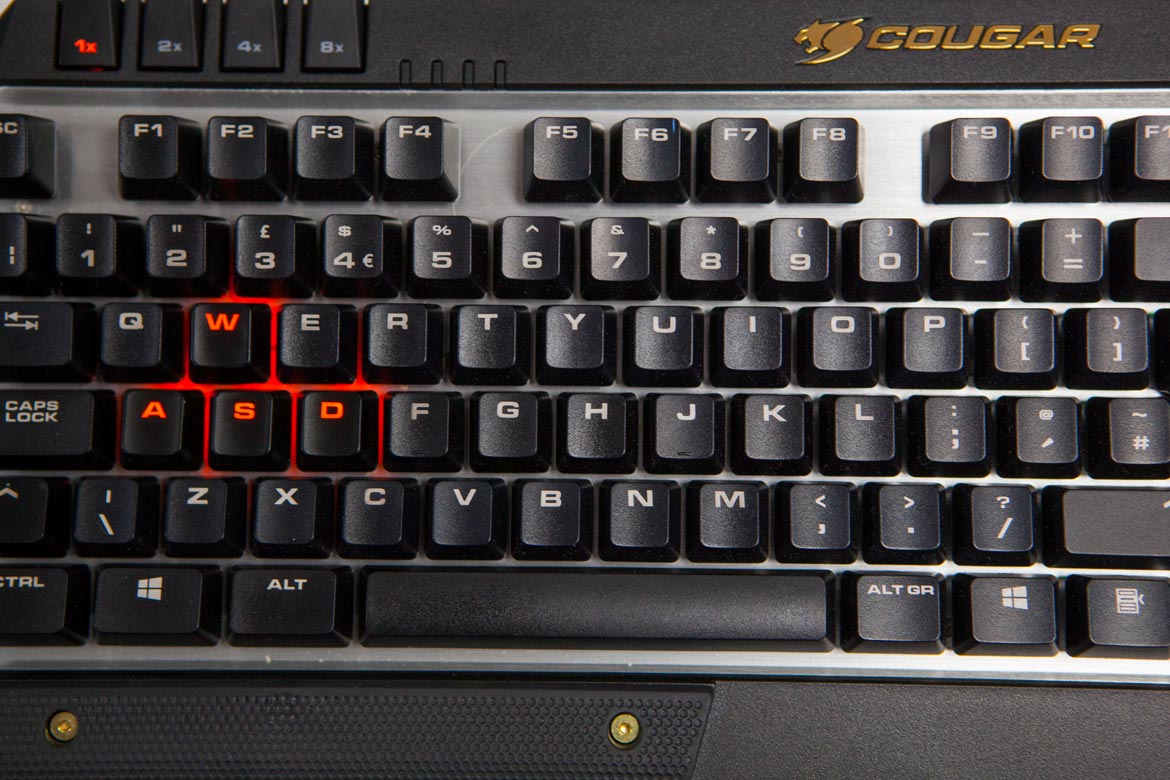PC Peripherals: How To Choose A Gaming Keyboard
Whether you’re a hardcore gamer, or just working at the office, your keyboard is an essential part of your PC peripherals. Gaming keyboards are a specialised keyboard option that caters more to the layout and demands of gamers, with added versatility, and features that many basic consumer keyboards just don’t offer. Some people spend more of their time typing at one than they do getting sleep, and ridiculous as it may sound, for many dedicated users, it's true.
Regardless of how you spend your time, if you like sleep as much as I do after a heavy gaming session, then you wouldn’t spare the expense when buying a quality bed. So why do PC users who are willing to spend thousands on their perfectly customized gaming pc or workstation, often go cheap when it comes to their keyboard? Unbeknownst to them, they're missing out on a golden market of computing products that could open up the way they experience gaming and computing.
Mechanical versus membrane
The header to this section could really just be “cheap versus premium,” though there is a lot more to it than just cost.
If you’re browsing for a budget keyboard that just does the job, it’s almost certainly going to be a membrane keyboard – they’re easy to manufacture, making them cheaper on the whole, and are often the go-to choice for many offices, businesses and schools. But if you’re a keen gamer, or even a typist, then you’ll likely find membrane keyboards rather frustrating. Whereas membrane keyboards work via electric currents which are triggered when the keys are fully pressed (bringing them into contact with the membrane, and in turn, the PCB), mechanical keyboards work via spring-loaded switches situated beneath each individual keycap.
While mechanical has a range of benefits over membrane, its biggest fault is generally the price-tag itself. Mechanical Keyboards will always be more expensive than a membrane counterpart, but there's one big reason why, and quite simply, it comes down to the overall quality. If you're looking for a more refined typing experience, with the ability to choose what kind of feedback you get from your keystrokes, then mechanical is definitely for you. Whether you're gaming, or even just spend a lot of time typing, between sturdier build quality, choice of switches, and more often than not, the oh-so important RGB lighting effects, you really can’t go wrong.
Features
The majority of consumers buying a computer tend to just keep the brutish, ugly plastic (sorry, "keyboard") that comes with the purchase of their new machine. If you’re a gamer, you could just stick with this office-grade hardware and be content to drive the core of your gaming experience with the equivalent of a Prius at the Grand Prix. But those that spend the extra buck investing in a keyboard for gaming and advanced computing will find that these devices are built with more durable materials and unlock features many users wouldn’t even consider.
Key Switches
As mentioned briefly above, whereas membrane keyboards work via electric currents that trigger when the keys are fully pressed, mechanical keyboards work via spring-loaded switches situated beneath each individual keycap. Not only does this allow for "key rollover," (more on that in Anti-ghosting below) meaning more than one keystroke can be registered simultaneously, but it also helps with the longevity of your keyboard, as the quality of the various switches, springs and keycaps combine to offer far more keystrokes than a membrane keyboard ever could.
These mechanical switches also have different types and ranges of actuation, meaning you can tailor your experience by changing the type of switch. Some switches are more sensitive, requiring far less force to press, meaning a highly responsive keyboard that requires very little "touch" to activate. Others can offer more resistance and need to be "bottomed-out" in order to actually register the keystroke, so are more suitable to those prone to "brushing" their keys a lot as they type or game. You can even opt for "tactile" switches, often known as "clicky" switches, due to the small bump you feel as feedback, confirming that the key has been actuated - though these can be quite noisy in office environments. There are even switches designed especially to be as quiet as possible, mimicking the softer, more delicate sounds of the cheaper membrane options.
Polling rate
If you're wondering how to choose the perfect gaming keyboard, then this is a term worth learning. The responsiveness of a gaming keyboard is described as a polling rate: the frequency at which your keyboard delivers input to your PC, and how often it checks the keyboard's USB for user input data.
You'll want a keyboard that can match the rate of your monitor. Whilst a standard computer keyboard runs at 125Hz, for a decent gaming experience that reflects your performance, you’re looking for a polling rate of around 1,000Hz. Certain gaming keyboards have the option for multiple polling rate selections, giving options for customization depending on your gaming preferences and how you play.
Anti-Ghosting
Every gamer has experienced ghosting. You’re fighting back waves of enemies with multiple attacks, pushing several buttons simultaneously, when suddenly one of them doesn’t register as you push the key. Your defence fails. You die. Game over.
If you’re playing Dark Souls, this could also mean game over for your keyboard as you destroy it out of frustration. Ghosting is the frustrating miscommunication between keys that leads to scenarios like this. A standard keyboard can handle three simultaneous strokes but a gamer is looking to get a minimum of five for the full potential of their skill, without unnecessary interruptions. Keyboards with anti-ghosting functionality can reach between five to ten simultaneous keystrokes, so imagine the possibilities those bad boys could do to your gaming ability.
Extra keys
It may seem like an odd, overlooked feature but the extra keys on a gaming keyboard allow for a multitude of abilities. Mega combos, beat downs, pausing, starting, accessing menus – more keys means you can reprogram your device to be a fluid tool that reflects how you play with whatever gaming style suits you - think, for example, of games like Overwatch or World of Warcraft. Reprogrammable and extra keys also open up more options for where you place each button. You can figure out where best works for you, configuring with the mouse and creating a gaming cluster that is more comfortable for extended hours of play; anyone else out there with a weak pinky finger? ... if you know, you know...
Certain “profile” gaming keyboards allow you to save various macros for different games, meaning you can record and save multiple profiles that save you time on having to constantly change up the button layout when you change from Destiny 2 to Player Unknown's Battle Grounds.
Backlighting
Gamers can choose to have no lights, a single glowing colour, or full RGB lit keyboards if they’re making their room look like a neo-noir Blade Runner rainbow. Whether you’re gaming in low light or playing into the early hours of the morning, a backlit gaming keyboard is both beneficial to your eyes and looks gorgeous as hell to your gaming set-up. Some models even allow for customization. But this isn’t just a pretty face, folks. A backlight glow makes it easy to co-ordinate your fingers as they rattle throughout the night, meaning you’ll never miss a key.
Pricing
Why spend more?
If you’ve already splashed out on an expensive custom-built gaming PC or a high-grade computer to meet your professional work-related quotas, logically you’re not going to cheap out on the keyboard. After all, it will affect your entire experience. A £20 membrane keyboard just isn’t going to cut it. If you and your wallet is willing, anything over £100 is basically going to let you dive into full RGB backlighting keyboards and advanced customizable models. Spending more opens up the avenues for a range of keys, macro keys, mechanical switches… whatever that little extra that you are looking for is, there’s a range out there open to you. However, these keyboards can peak above £150 at times, so it's still sensible to weigh-in your options before making a decision on just how important the varied features you need are.
Why Spend Less?
Here be membrane keyboards, gaming warriors. Anything below £100 may not feature all the advancements that pricier options might hold, but there are still some real gems to be found in these sections. If you hope to find mechanical keyboards for cheaper, I recommend browsing through older models. Otherwise, search for membrane keyboards that can reflect what a mechanical keyboard gives you.
What are your thoughts on keyboards for gaming and the office? Are membrane part of a by-gone age, existing only as the bulk, or budget option? Are you a big fan of mechanical? Let us know down in the comments.
Posted in TechShot
Published on 31 Oct 2017
Last updated on 09 Feb 2023

